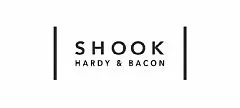- within Employment and HR topic(s)
- with Inhouse Counsel
- in United States
- with readers working within the Healthcare industries
In a controversial decision, the American Law Institute (ALI) approved a novel “Special Rule on Vicarious Liability for Sexual Assault” that endorses a new strict liability tort claim against employers for certain sexual assaults committed by employees against third parties. The ALI's membership approved this novel tort claim at the organization's Annual Meeting held May 19-21, 2025, as part of the Restatement of Torts, Third: Miscellaneous Provisions. This Restatement, which was initiated in 2019 and completed at this year's Annual Meeting, is one of the final parts of the Restatement of Torts, Third and a “catch all” of issues not covered elsewhere in the Restatement of Torts, Third. It is one of the most controversial modern restatements because several provisions endorse novel expansions of tort law.
The approved vicarious liability provision recommends the imposition of vicarious liability against employers if an employee commits a sexual assault against a “particularly vulnerable” person, a broad group that includes the elderly, children, persons with disabilities, and incarcerated individuals. The relevant text of the rule states:
[A] factfinder may find an employer vicariously liable for its employee's sexual assault of a person if:
(1) the nature or conditions of the employee's employment creates a reasonably foreseeable risk of sexual assault;
(2) the person is particularly vulnerable, by reason of age, mental capacity, disability, incarceration, detention, confinement, medical need, or other similar circumstance;
(3) the employer facilitates the sexual assault by providing the employee with substantial power, authority, or influence over the person; [and]
(4) the sexual assault occurs when the employee is performing work assigned by the employer or engaging in a course of conduct subject to the employer's control.
The Restatement acknowledges that the proposed rule “did not previously exist” and that it “breaks with traditional tort doctrine” by permitting vicarious liability where an employee commits a sexual assault with no motive to serve the employer's interest. Earlier drafts stated that the proposed rule “reflects society's dawning recognition that sexual assault inflicts unique and devastating harm” and invoked the #MeToo movement as support for the rule.
If adopted by courts, the proposed rule will have profound implications for businesses, non-profits, and other entities that provide services to vulnerable persons, including nursing or senior care facilities, schools and other childcare providers, medical care providers, and correctional facilities, among others.
Originally published July 2025
The content of this article is intended to provide a general guide to the subject matter. Specialist advice should be sought about your specific circumstances.


